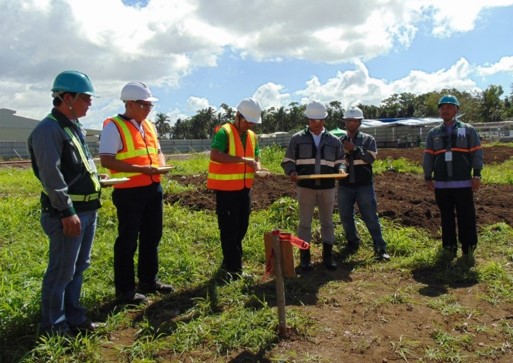MAKATI CITY – Nestlé Philippines Chairman and CEO Jacques Reber announced today the ongoing construction of a MILO malt plant at the company’s Lipa factory in Batangas with a total investment of PhP 2 billion.
Mr. Reber said the impetus for the investment is the company’s strong confidence in the continued growth of the country’s economy, consistent with its long-term mission of nurturing generations of Filipino families and contributing to nation-building.
“The Philippines is a key market for us at Nestlé. For over a century, we have continually affirmed our confidence in, and commitment to the Philippines through our investments and expansion. Our PhP2 billion investment in the new MILO malt plant is another concrete demonstration of our commitment to the Philippines,” Mr. Reber said. The announcement of the new MILO malt plant investment coincides with the celebration of the global Nestlé Group’s 150th anniversary this year.

Construction of the MILO malt plant began in December 2015 and is expected to be completed in October 2017.
Malt Requirements for MILO
The plant will provide all the country’s Protomalt requirements for MILO, the country’s leading and well-loved choco-malt milk drink that Filipino consumers have grown up with. Protomalt, a Nestlé proprietary malt extract and a key nutritional ingredient of MILO, provides the product its characteristic taste and serves as a source of energy that helps fuel both body and mind activities.
At present, Protomalt for MILO manufactured in the Philippines is sourced from Singapore, where the Nestlé Group’s biggest malt plant is located. Other Nestlé malt plants are located in Nigeria and Australia. In order to ensure quality, all Protomalt used by Nestlé is produced by the company itself in the three plants.
The new plant will use barley and cassava as major raw materials for the production of the malt extract. While cassava will initially be imported from Thailand, Nestlé is now actively looking at using cassava sourced from farmers in Philippines to create shared value, a move that is expected to help improve livelihood, further boost agriculture, and uplift the cassava industry in the country. The Company has started to qualify cassava farmers in Mindanao, and hopes that more farmers will take up cassava planting to supply Nestlé’s requirements in the long term.
Nestlé expects the malt plant’s capacity to increase considerably in three to four years, with potential for exporting some of its output to other Nestlé companies abroad.
The plant will enable Nestlé Philippines to develop new types of malt extract to address the evolving needs of Filipino consumers.
Environment-Friendly
The state-of-the-art MILO malt plant will use natural lighting and ventilation, and is designed for low water consumption and minimal water loss. Solar panels will heat water for use in production, saving on energy costs and the use of traditional energy sources. The plant’s cooling towers will use available rainwater and treated processing water will serve to irrigate the nearby Nestlé Lipa Integrated Coffee Center, which will also use residue from production as fertilizer. Spent grains from barley residuals, which have nutritional values, will be used for animal feeds. The new facility is highly automated and will employ 23 new operators and technicians.
The 5,400 sq. m. malt facility, which will house a specially designed gallery allowing visitors to observe and understand how malt is produced for MILO, will be the third plant at the Nestlé Lipa factory complex which has a total land area of 29 hectares. The factory’s two other plants manufacture MILO and breakfast cereals, respectively.
Investments in the Philippines
In the last five years, Nestlé has invested close to PhP 14 billion in the country, and Mr. Reber said investments are expected to increase significantly in the next five years as the company further expands its production facilities to increase capacity, deploys new manufacturing technologies, and upgrades its capability to further promote safety and health, and protect the environment.
Nestlé Philippines has five factories in the country: Cabuyao in Laguna (infant nutrition products, milks and liquid beverages), Cagayan de Oro in northern Mindanao (coffee and powdered milk drink), Pulilan in Bulacan (ice cream and fresh dairy), Lipa in Batangas (powdered beverages and breakfast cereals); and Tanauan, also in Batangas (coffee creamer and powdered milk drink).
The company’s sales stood at PhP121 billion in 2015, up from PhP 116 billion in 2014.









